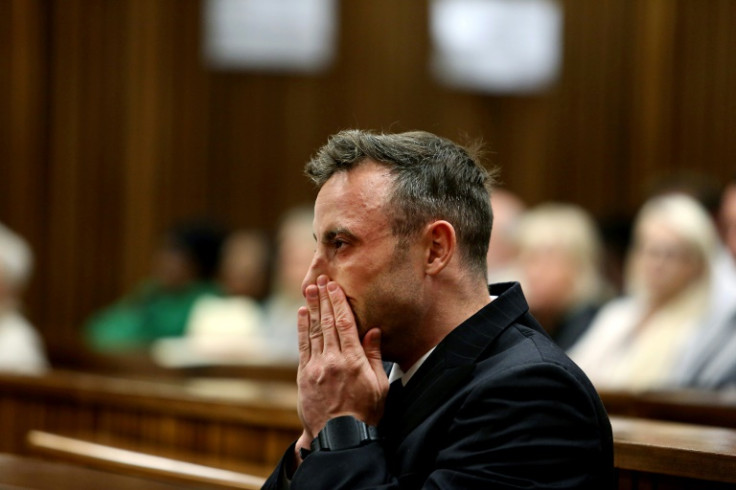S. Africa's Pistorius In Fresh Parole Bid Decade After Murder

South African Paralympic champion Oscar Pistorius was Friday seeking an early release from prison, a decade after he killed his girlfriend in a crime that gripped the world.
Pistorius, 37, is appearing before a parole board at a correctional centre outside Pretoria where he is currently detained.
The board is reviewing the ex-athlete's profile to decide whether he is suitable for social reintegration, the department of correctional services said.
"We are not sure whether the inmate, if successful, is going home today or there will be other terms like he has to go through other programmes," correctional services spokesman Singabakho Nxumalo told AFP outside the prison, where many media crews had gathered.
It is Pistorius' second shot at parole in less than eight months.
He lost a first bid in March when the board found Pistorius had not completed the minimum detention period required to be let out.
The Constitutional Court last month ruled that was a mistake, paving the way for a new hearing.
Pistorius killed Reeva Steenkamp, a model, in the early hours of Valentine's Day 2013, firing four times through the bathroom door of his ultra-secure Pretoria house.
Known worldwide as the "Blade Runner" for his carbon-fibre prosthetics, he was found guilty of murder and given a 13-year jail sentence in 2017 after a lengthy trial and several appeals.
He had pleaded not guilty and denied killing Steenkamp in a rage, saying he mistook her for a burglar.
As part of his rehabilitation, Pistorius met Steenkamp's parents last year, in a process authorities said aims to ensure inmates "acknowledge the harm they have caused".
But in March, Steenkamp's parents opposed an early release, saying they did not believe the former sprinter told the truth about what happened and had not shown remorse.
"I don't believe his story," Steenkamp's mother June said then.
Steenkamp's father Barry died in September aged 80.
June Steenkamp was not present at the parole hearing. She is being represented by a family spokesman and a lawyer, who will read a victim impact statement on her behalf.
The spokesman, Rob Matthews, is the father of a university student murdered in 2004, who became friends with the Steenkamps as the two families went through parallel parole proceedings for the killers of their daughters.
"It's been a real tough road that June has travelled... in March there was a parole hearing and it took all her courage to attend that," Matthews said.
"For her to be here today was going to be very difficult".
June Steenkamp's legal team has declined to say whether the widow is still opposing parole.
Offenders in South Africa are automatically eligible for parole consideration after serving half of their sentence.
The board, normally made up of correctional services and community members, assesses whether an inmate still poses a danger to society.
This takes into account the seriousness of the offence as well as Pistorius' behaviour behind bars.
"I fully trust that the parole board will apply their mind based on the information that's placed before them," June Steenkamp's lawyer, Tania Koen said on Thursday, adding she did not believe the hearing would be "just a formality" with Pistorius set for an early release.
The panel is different from the one that heard the case in March, she said.
Lawyers for Pistorius have said they hope that the delay caused by the mistake made in calculating the minimum detention period earlier this year will be taken into consideration and the ex-athlete be granted "an immediate release" on Friday.
Normally, it can take weeks before a prisoner who is granted parole is effectively discharged.
Release usually comes with some conditions, such as monitoring from authorities and duty to report to a community correction centre.
If denied, the offender has the right to approach the courts for review.
© Copyright AFP 2025. All rights reserved.

















